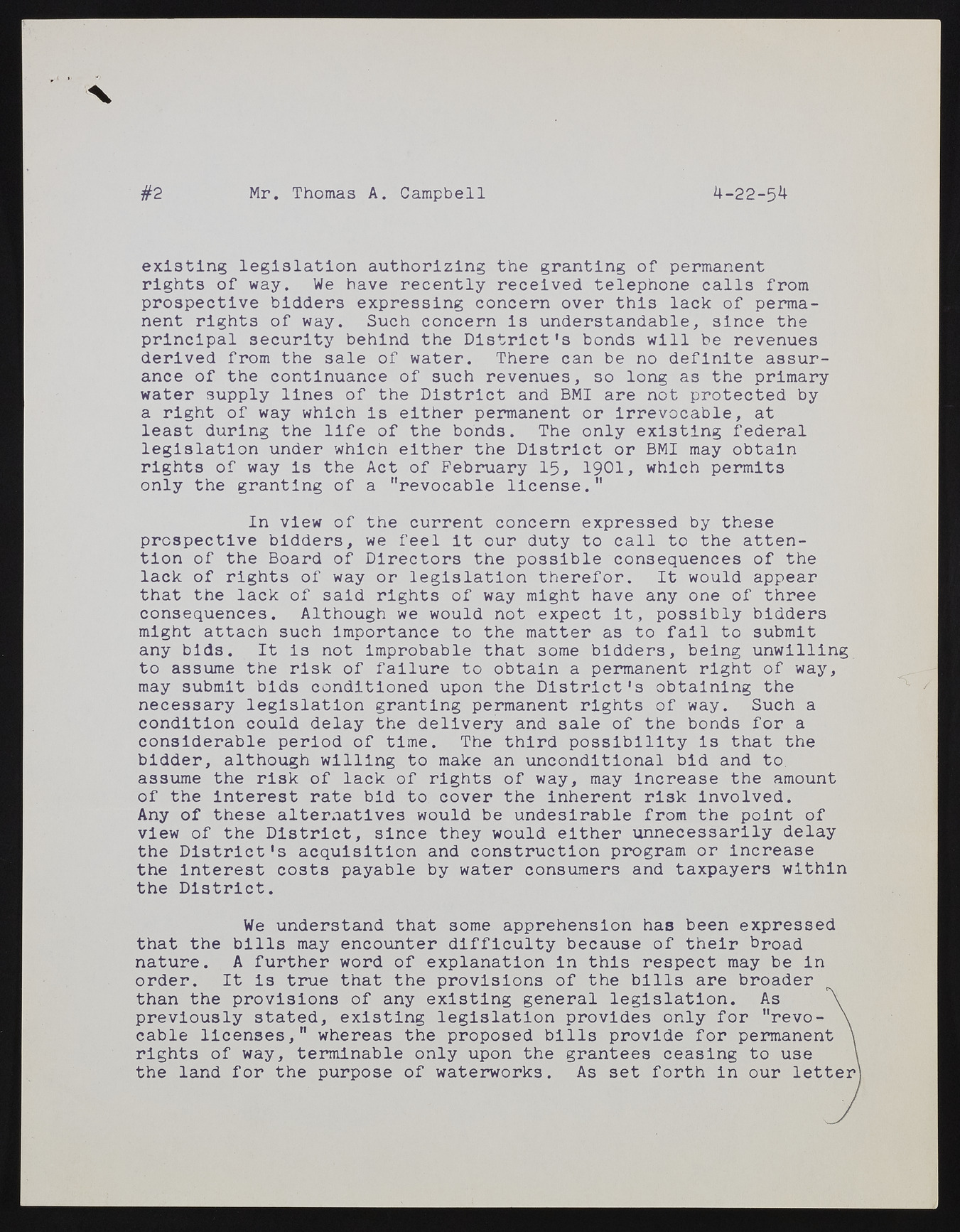Copyright & Fair-use Agreement
UNLV Special Collections provides copies of materials to facilitate private study, scholarship, or research. Material not in the public domain may be used according to fair use of copyrighted materials as defined by copyright law. Please cite us.
Please note that UNLV may not own the copyright to these materials and cannot provide permission to publish or distribute materials when UNLV is not the copyright holder. The user is solely responsible for determining the copyright status of materials and obtaining permission to use material from the copyright holder and for determining whether any permissions relating to any other rights are necessary for the intended use, and for obtaining all required permissions beyond that allowed by fair use.
Read more about our reproduction and use policy.
I agree.Information
Digital ID
Permalink
Details
More Info
Rights
Digital Provenance
Publisher
Transcription
#2 Mr. Thomas A. Campbell 4-22-54 existing legislation authorizing the granting of permanent rights of way. We have recently received telephone calls from prospective bidders expressing concern over this lack of permanent rights of way. Such concern is understandable, since the principal security behind the District's bonds will be revenues derived from the sale of water. There can be no definite assurance of the continuance of such revenues, so long as the primary water supply lines of the District and BMI are not protected by a right of way which is either permanent or irrevocable, at least during the life of the bonds. The only existing federal legislation under which either the District or BMI may obtain rights of way is the Act of February 15, 1901, which permits only the granting of a "revocable license." In view of the current concern expressed by these prospective bidders, we feel it our duty to call to the attention of the Board of Directors the possible consequences of the lack of rights of way or legislation therefor. It would appear that the lack of said rights of way might have any one of three consequences. Although we would not expect it, possibly bidders might attach such importance to the matter as to fail to submit any bids. It is not improbable that some bidders, being unwilling to assume the risk of failure to obtain a permanent right of way, may submit bids conditioned upon the District's obtaining the necessary legislation granting permanent rights of way. Such a condition could delay the delivery and sale of the bonds for a considerable period of time. The third possibility is that the bidder, although willing to make an unconditional bid and to. assume the risk of lack of rights of way, may increase the amount of the interest rate bid to cover the inherent risk involved. Any of these alternatives would be undesirable from the point of view of the District, since they would either unnecessarily delay the District's acquisition and construction program or increase the interest costs payable by water consumers and taxpayers within the District. We understand that some apprehension has been expressed that the bills may encounter difficulty because of their broad nature. A further word of explanation in this respect may be in order. It is true that the provisions of the bills are broader than the provisions of any existing general legislation. As previously stated, existing legislation provides only for "revocable licenses," whereas the proposed bills provide for permanent rights of way, terminable only upon the grantees ceasing to use the land for the purpose of waterworks. As set forth in our letter

